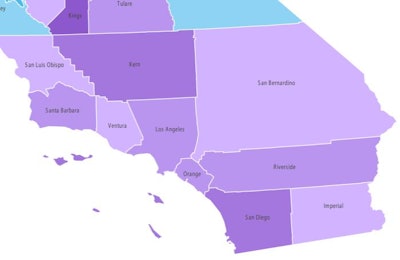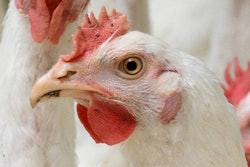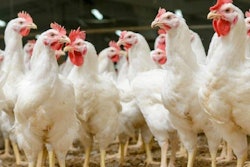
Virulent Newcastle disease (vND) continues to be problematic in California, as a case of the disease was recently confirmed at a live bird market in Los Angeles County.
The the United States Department of Agriculture’s (USDA) Animal and Plant Health Inspection Service (APHIS) confirmed the case, according to a press release from the agency.
All birds from the affected live bird market were depopulated and the market has been cleaned and disinfected to prevent additional spread of the disease. As a precautionary measure, all 34 markets in the Los Angeles area have also been cleaned and disinfected.
Over the past few weeks, the response team intensified its efforts and identified additional cases of vND within existing disease-control areas. Affected flocks are quickly euthanized. Together, these actions will help us prevent additional disease spread and eradicate the disease more quickly.
California has now had 150 cases of virulent Newcastle disease
The discovery of vND at the poultry market marked the 50th case in California during 2018. However, to date, no vND cases have been reported outside of California or in commercial poultry.
So far, the cases have been limited to four counties. San Bernardino County has had the most with 97. There have been 21 cases in Riverside County, 31 in Los Angeles County and 1 in Ventura County:
With the exception of the live market case, all cases reported to date have been in backyard exhibition flocks. All but one of those was in backyard exhibition chickens, with the other being in a mixed flock of exhibition birds.
Virulent Newcastle disease has not been found in commercial poultry in the United States since 2003.
Samples from the flocks were tested at the California Animal Health & Food Safety Laboratory System (CAHFS). The APHIS National Veterinary Services Laboratories in Ames, Iowa, confirms all findings. APHIS is working closely with the California Department of Food and Agriculture to respond to these findings and to conduct an epidemiological investigation. Federal and State partners are also conducting additional surveillance and testing in the area.


















